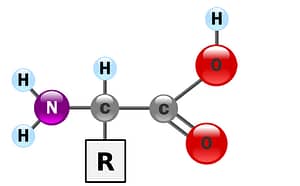New research from the University of Wisconsin School of Medicine and Public Health suggests that a calorie may not be just a calorie.
Recent research challenges the notion that all calories are equal, showing that reducing isoleucine, an amino acid, in the diet can offer significant health benefits. This study in mice demonstrated extended lifespans, reduced frailty, and lower cancer rates, even with increased calorie consumption. The findings contradict previous assumptions and highlight the importance of diet composition in determining dietary changes.
“We like to say a calorie is not just a calorie,” says Dudley Lamming, a professor and metabolism researcher at the University of Wisconsin School of Medicine and Public Health. “Different components of your diet have value and impact beyond their function as a calorie, and we’ve been digging in on one component that many people may be eating too much of.”
Role of Amino Acids in Healthy Aging
Dudley Lamming, a metabolic researcher and professor at the University of Wisconsin School of Medicine and Public Health, emphasizes the importance of different components of a person’s diet.
A new research conducted in mice, as reported by Lamming, published in the journal Cell Metabolism, suggests that reducing isoleucine levels can help prolong life, reduce aging-related fragility, and lower cancer and prostate issues, while also consuming more calories.
Lamming and his colleagues are interested in how amino acids play a role in determining how and why we age well.
Researchers at UW-Madison discovered that Wisconsinites who have higher body mass index scores are more likely to consume isoleucine, a crucial amino acid that is found in a variety of foods such as eggs, dairy, soy protein, and meat.

Dietary Experiments and Their Revolutionary Outcomes
Lamming and his team at UW-Madison utilized genetically diverse mice to obtain a balanced control diet, a diet low in approximately 20 amino acids, or a diet designed to eliminate two-thirds of the isoleucine content of the diet. The mice were allowed to eat as much as they pleased, according to the study.
According to Lamming, “Very quickly, we saw the mice on the reduced isoleucine diet lose adiposity — their bodies got leaner, they lost fat, while the bodies of the mice on the low-amino-acid diet also got leaner to start, but eventually regained weight and fat”.
The diet given to mice increased their longevity, with males living 33% longer and females longer compared to males and females. They also exhibited better health during their extended lifespan, as indicated by 26 health indicators, which included tests on muscle strength, endurance, tail use, and hair loss.
Lamming, who is supported by the National Institutes of Health, notes that previous studies have revealed a significant increase in lifespan when diets were changed from young mice to older ones.
“Previous research has shown lifespan increase with low-calorie and low-protein or low-amino-acid diets starting in very young mice,” says Lamming, whose work is supported by the National Institutes of Health. “We started with mice that were already getting older. It’s interesting and encouraging to think a dietary change could still make such a big difference in lifespan and what we call ‘healthspan,’ even when it started closer to mid-life.”
At the same time, Lamming says, they maintained steadier blood sugar levels and male mice experienced less age-related prostate enlargement. And while cancer is the leading cause of death for the diverse strain of mice in the study, the low-isoleucine males were less likely to develop a tumor.
Implications for Human Diet and Future Research
While the results are promising, humans do need isoleucine to live. And winnowing a significant amount of isoleucine out of a diet that hasn’t been preformulated by a mouse chow company is not an easy task.